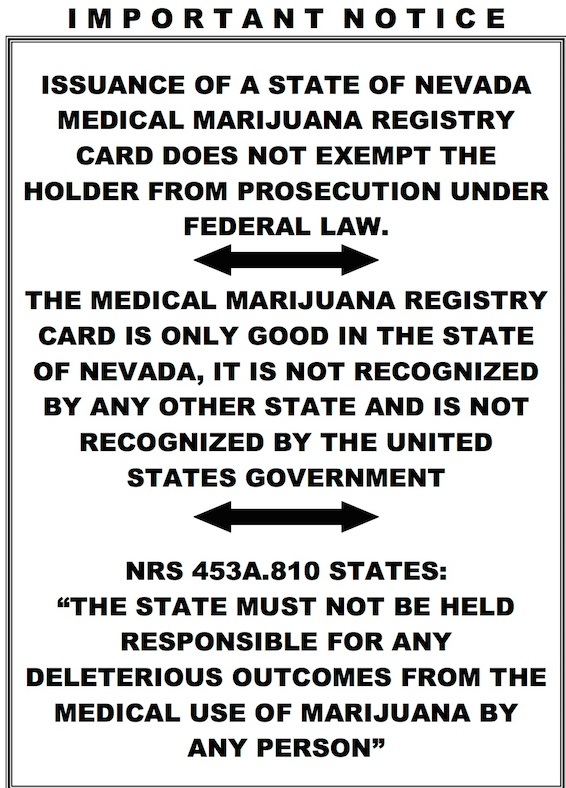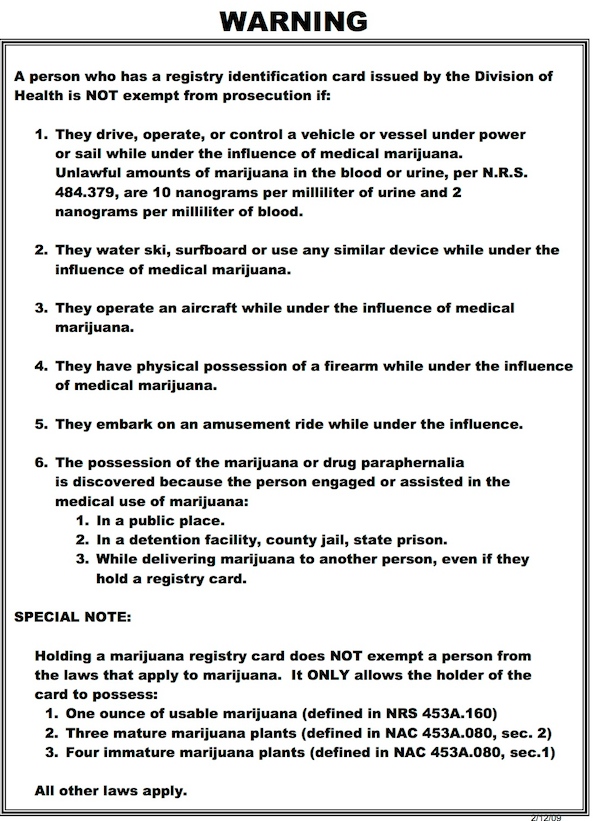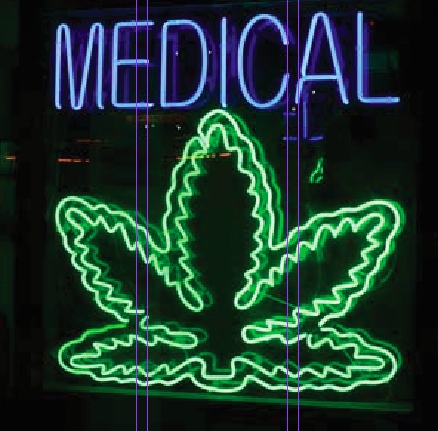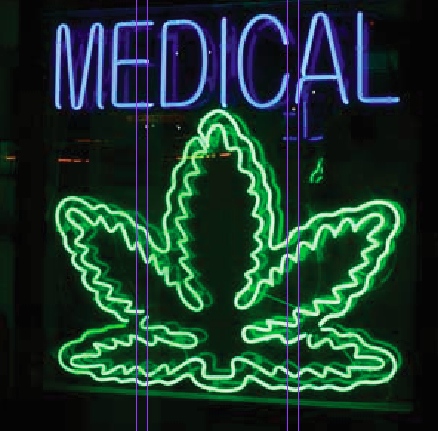Will Wendover, Nevada the home away from home for Utahans seeking the sins of gambling, loose women, cheep booze and cigarettes add marijuana to the menu or is even weed for medical reasons a vice too far?
This April and over 13 years since the sale medical marijuana was first approved by Nevada voters buying and selling medical marijuana will legal at least by state law in various dispensaries in the Silver State.
Whether one of those dispensaries will be in the Nevada/Utah border town of Wendover is still any body’s guess.
“We haven’t had anybody contact us yet,” said West Wendover City Clerk Anna Bartlome. “And the issue still hasn’t come up before the city council. As far as I know legal is still researching it. So as far as I know the city can’t permit it yet.”
 In the 2000 election the sell of medical marijuana was endorsed by well over 60 percent of Nevada voters but while theoretically legal the state did not adopted any mechanism for the sale or purchase of pot for medical purposes until the 2013 legislature. Those mechanism go into effect this April.
In the 2000 election the sell of medical marijuana was endorsed by well over 60 percent of Nevada voters but while theoretically legal the state did not adopted any mechanism for the sale or purchase of pot for medical purposes until the 2013 legislature. Those mechanism go into effect this April.
Under the provisions of the new law medical marijuana dispensaries must be licensed by the state and local governments and buyers must also be certified by a medical professional.
In anticipation of the new law over 20 dispensaries have opened but the weed rush has been confined to Clark County and almost exclusively in Las Vegas.
North of the Clark County line, the rest of Nevada seems to be taking a wait and see approach and some cities including Elko are considering a preemptive strike by banning dispensaries before any can apply to open.
And judging from history it would not be a surprise if Wendover followed that lead.
Four years ago West Wendover actually took the lead and became the first Nevada City to ban the sale of the artificial marijuana known as Spice.
There are however major differences between how Spice was marketed and medical marijuana. First and foremost Spice and similar drugs were sold over the counter to anyone regardless of age. Secondly Spice and similar drugs had no quality control.
 According to Sue Parr, CCOVA Public Policy Coordinator, K2/Spice products are a mixture of herbal/spice plant products sprayed with potent psychotropic drugs, often contaminated with unidentified toxic substances which contribute to various adverse health effects and also cause hallucinogenic effects similar to effects of PCP.
According to Sue Parr, CCOVA Public Policy Coordinator, K2/Spice products are a mixture of herbal/spice plant products sprayed with potent psychotropic drugs, often contaminated with unidentified toxic substances which contribute to various adverse health effects and also cause hallucinogenic effects similar to effects of PCP.
 The state law for medical marijuana is much more restrictive both to buyers and to sellers. Not only must both register with the proper agency but there is also strict quality control for the product.
The state law for medical marijuana is much more restrictive both to buyers and to sellers. Not only must both register with the proper agency but there is also strict quality control for the product.
In addition to the restrictions the state has also release fliers cautioning potential users that while local police might not make an arrest for medical marijuana possession it is still a crime under federal law.
And while federal agents have been exceedingly lax in other states that have permitted medical marijuana or have indeed even legalized the use of recreational weed, there is no telling what tomorrow may bring.
That uncertainty may explain why no one is beating down the door to open a dispensary in Wendover.
However if the feds keep their hands off attitude Wendover could be uniquely suited to an up and coming marijuana entrepreneur. Located just 120 miles from Salt Lake City, wendover has long made a living on offering what simply cant be had in Mormon dominated Utah such as casino gambling and relatively cheap alcohol and cigarettes.
With the chances of medical marijuana coming to Utah about as good as the state adopting a lottery a dispensary in Wendover might have a better than even chance of making a profit.
 There is however some competition being offered on the other side of Utah in Colorado which recently legalized marijuana not just for those with a note from their doctors but for everyone.
There is however some competition being offered on the other side of Utah in Colorado which recently legalized marijuana not just for those with a note from their doctors but for everyone.
Competition could also come down south from Mesquite Wendover’s perennial rival for the Utah tourist dollar. Located in the much more liberal Clark County a medical pot business in Mesquite might have a far easier time opening than in Elko County.
The Cannabis plant has a history of medicinal use dating back thousands of years across many cultures.
Cannabis has been used to reduce nausea and vomiting in chemotherapy and people with AIDS, and to treat pain and muscle spasticity;[2] its use for other medical applications has been studied, but there is insufficient data for conclusions about safety and efficacy. Short-term use increases minor adverse effects, but does not appear to increase major adverse effects.[3] Long-term effects of cannabis are not clear,[3] and there are safety concerns including memory and cognition problems, risk for dependence and the risk of children taking it by accident.[2]
 Medical cannabis can be administered using a variety of methods, including vaporizing or smoking dried buds, eating extracts, and taking capsules. Synthetic cannabinoids are available as prescription drugs in some countries; examples include: dronabinol (available in the United States (US) and Canada) and nabilone (available in Canada, Mexico, the United Kingdom (UK), and the US).
Medical cannabis can be administered using a variety of methods, including vaporizing or smoking dried buds, eating extracts, and taking capsules. Synthetic cannabinoids are available as prescription drugs in some countries; examples include: dronabinol (available in the United States (US) and Canada) and nabilone (available in Canada, Mexico, the United Kingdom (UK), and the US).
The Institute of Medicine, run by the United States National Academy of Sciences, conducted a comprehensive study in 1999 assessing the potential health benefits of cannabis and its constituent cannabinoids. The study concluded that smoking cannabis is not to be recommended for the treatment of any disease condition, but that nausea, appetite loss, pain and anxiety can all be mitigated by cannabis. While the study expressed reservations about smoked cannabis due to the health risks associated with smoking, the study team concluded that until another mode of ingestion was perfected providing the same relief as smoked cannabis, there was no alternative.


